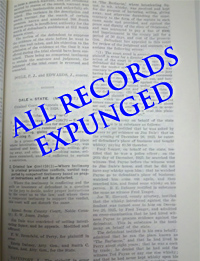How does the expungement process work in Pennsylvania?
Pennsylvania Expungement Process
An expungement is basically the destruction of court and law enforcement records. The process requires the preparation and filing of an expungement petition with the Clerk of Courts in the county in which the case was filed. The Rules of Criminal Procedure detail the information that must be included in the petition and documentation that must be attached to the petition. The Rules apply to everyone, both lawyers and non-lawyers. Failure to include the required information or attach the required paperwork will normally result in the expungement being denied or not being completed.

Expungement Process Varies from County to County
After the expungement petition is filed, the exact process varies from county to county thereafter. In some counties, like Centre, the expungement is reviewed by the district attorney. If the person is legally eligible to seek the expungement, the district attorney files a “non-objection,” and a judge will sign the expungement without having a hearing. Everything is completed via paperwork.
In other counties, the expungement is scheduled for a hearing. At the hearing, the district attorney may or may not oppose the request, but the person must be ready to present evidence to convince the judge that the request should be granted. Judges listen to reasons why they should or should not grant an expungement. The judge considers things like strength of the Commonwealth’s case; the reasons the Commonwealth gives for opposing the expungement; your age, criminal record, and employment history; the length of time that has elapsed since the incident; and how the record is harming or preventing you from moving forward. A judge then determines whether or not to grant the expungement.
Because the expungement process varies from county to county, a person should consult with an attorney that has experience in handling expungements in the particular county in which the case must be filed. Experience and knowledge matter. The attorneys at JD Law in State College have experience in filing expungement petitions in Centre, Clinton, Mifflin, and Huntingdon counties. If you need expungement work in those counties, contact JD Law via email or leave a message at (814) 689-9139.
